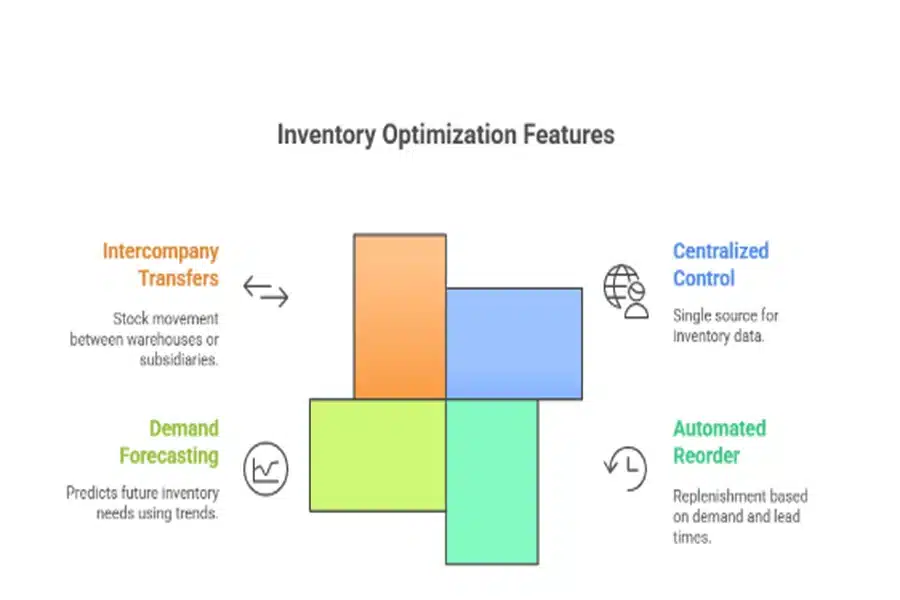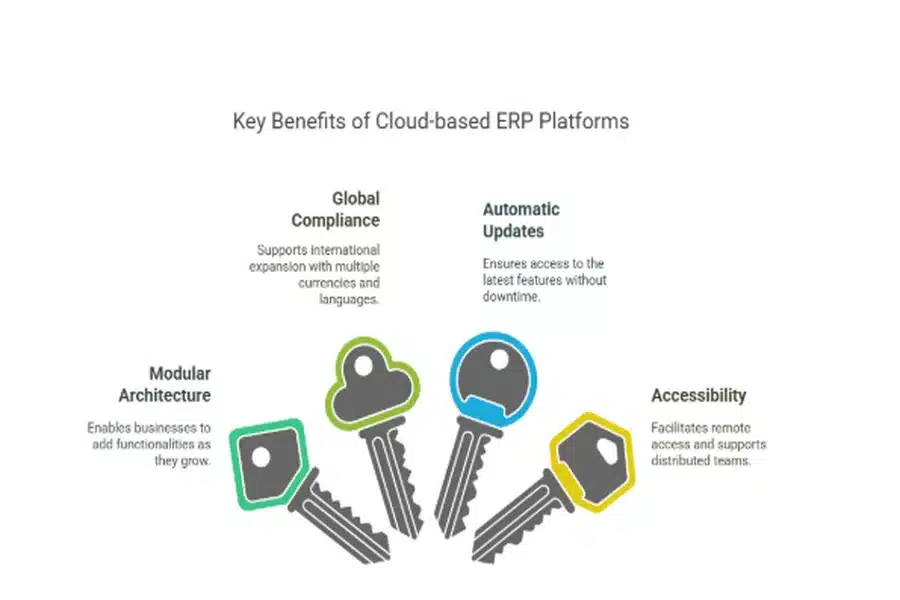The wholesale distribution sector is undergoing a major transformation. Fast technology improvements, changing consumer expectations, and fluctuating world economic circumstances are paving the way for how distributors will work moving forward. To remain profitable and competitive, wholesale distributors must adapt to the contemporary, integrated solutions that solve present problems and prepare them for future trends.
NetSuite Wholesale Distribution is among the top cloud-based ERP solutions developed exclusively for wholesale distributors. This blog is written to highlight the main future trends defining the sector and how this strong software solution is helping firms adapt, create, and prosper in a changing environment.
Future-proofing distribution operations: Rising to new supply chain challenges
Dealing with supply chain interruptions is now a regular issue for companies all over. Due to insufficient resources, extended delays while traveling, and labor regulations, these difficulties make it difficult to provide good service to customers. We can anticipate the emergence of more difficulties, such as political disagreements, updates in customs duties, and adjustments to environmental requirements. Providing distributors with real-time information, these modern ERP systems allow them to react ahead of issues and track orders, their suppliers, and their stock levels. The use of data from the past and machine learning allows integrated demand solutions to optimize both procurement and refilling stock, thus helping lower stock-outs and any extra stock on hand. With cloud solutions, things like communication and problem-solving are made easier and happen more quickly for suppliers, warehouses, and sales channels. With vendor scorecards, purchasing order approvals, and much of the process done automatically, suppliers show higher consistency and efficiency. They make wholesale distributors strong and flexible, which will help them deal with the changing supply chain of tomorrow by using these technologies.
Smarter warehousing: Automation and efficiency for distribution excellence
The warehouse distribution industry depends on strong warehousing operations. How effective they are can change customer happiness and the business’s profits straightaway. According to experts, improving warehouse operations will require more automation, robotics, and information from data. These advanced warehouse management features are available: Using technology to track lot and serial numbers helps make sure that the supply chain is compliant and follows rules. With handheld scanning, the receiving, picking, packing, and shipping processes become faster and more accurate. This method keeps products packed the same way, so fulfilment is straightforward for large items, helping with speed. Tracking stock in real time from multiple storage sites makes stock allocation better and cuts down on holding costs. Use of 3PL partners and automated equipment allows distributors to increase operations without affecting accuracy or speed. Using these abilities helps companies save money on staff, increase how accurate their orders ar, and deliver faster, making them stronger competitors in a market that keeps getting harder.
Omnichannel commerce: satisfying today’s buyers’ expectations
Consumer behavior is changing fast. Customers today demand flawless interactions everywhere, whether they place orders online, via mobile applications, or via conventional sales agents. This omnichannel trend is reshaping wholesale distribution, requiring distributors to unify their sales channels and provide consistent service.
Unified platforms combine conventional order management, marketplaces, and e-commerce storefronts into one system. This strategy lets distributors:
- Avoid discrepancies and overselling by central management of prices, promotions, and inventory.
- Give clients self-service portals and real-time order tracking.
- Create individualized consumer experiences depending on preferences and buying patterns.
- Support complicated B2B purchasing systems, including contract pricing, credit management, and bulk ordering.
Research reveals that over 30% of wholesale customers, an increasing percentage, complete at least half of their transactions online. Embracing omnichannel features helps distributors to satisfy these demands, broaden market reach, and strengthen customer relationships.
Data-driven decision making: Utilizing analytics for wholesale success
Future wholesale distribution terrain will see data as a tactical asset. Making informed decisions based on accurate, real-time data can significantly improve operational efficiency and profitability.
Modern ERP platforms come equipped with powerful analytics and reporting tools tailored for wholesale needs, including:
- Customized for various roles, including warehouse managers, sales teams, and executives, real-time dashboards offer immediate KPI insights.
- Advanced forecasting helps to minimize waste by means of historical sales and market trends analysis which predicts demand thereby maximizing inventory.
- Margin analysis helps to track product profitability and so lets one change pricing plans.
- Financial Reporting simplifies compliance and offers insight into revenue, costs, and cash flow.
By using these data-driven insights, distributors can find opportunities for growth, highlight flaws, and respond quickly to market changes, thereby turning data into a competitive advantage.
Cross-Channel Inventory Optimization: Stock Management’s Future
Wholesale distributors still face great difficulties in managing inventory across many sales channels and several warehouses. Stock-outs jeopardize lost sales and dissatisfied consumers, and overstocking locks up money.

This comprehensive technique guarantees inventory availability where and when it is required, therefore lowering carrying costs and raising customer satisfaction. Inventory optimization features will be absolutely critical as wholesale distribution with several channels and geographies gets more difficult.
Scaling for Tomorrow: The Cloud Advantage in Wholesale Distribution Expansion
Many wholesale distributors have growth as a major objective, whether it be broadening product lines, penetrating new markets, or competing with others. Still, growing operations pose difficulties, including more complexity, compliance needs, and IT infrastructure demands.

Using cloud ERP lets wholesale distributors grow quickly, ensure operational continuity, and keep ahead of rivals in a global market that is becoming increasingly competitive.
Final Thoughts
The wholesale distribution sector is at a turning point now thanks to NetSuite implementation. Success in the years to come will be defined by future trends such as supply chain complexity, warehouse automation, omnichannel commerce, data-driven decision-making, inventory optimization, and rapid scaling.
Companies can face these difficulties directly by using a contemporary, integrated ERP solution made for wholesale distribution, such as NetSuite wholesale distribution. These solutions provide the tools required to create resilient supply chains, maximize operations, interact with customers across channels, and scale effectively.
Investing in the correct technology now sets wholesale distributors up for continuous growth, higher profitability, and outstanding customer experiences in 2025 and beyond.



